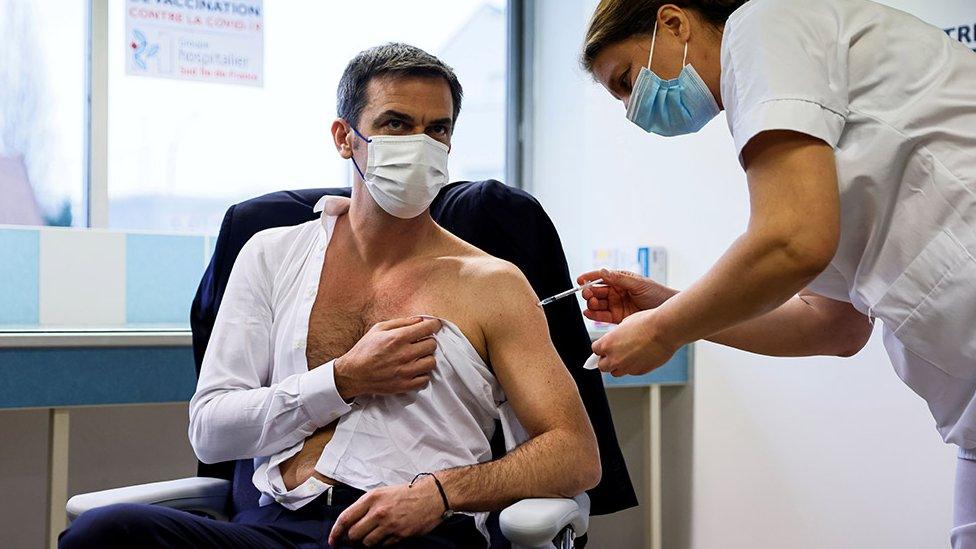Covid: EU's von der Leyen admits vaccine rollout failures
- Published
In February the head of the European Commission insisted on Europe's "fair share" of vaccines
The EU was late to authorise Covid-19 vaccines and "still not where we want to be", European Commission President Ursula von der Leyen has said.
She also acknowledged the EU had been overconfident about production targets being met amid delays at factories.
The Commission chief has come under fire for the EU's slow vaccine rollout.
There is anger that the bloc has fallen behind countries like the UK, where more than 12 million people have already received the jab.
But Mrs von der Leyen was adamant that ordering vaccines collectively on behalf of member states was "the right thing to do".
Meanwhile pharmaceutical group AstraZeneca has said it will join forces with German company IDT Biologika to produce more vaccines for Europe.
Producers of vaccines including the Oxford-AstraZeneca and Pfizer-BioNTech jabs have postponed delivery of some of the EU's order because of capacity and supply issues.
This was Mrs von der Leyen's first public acceptance of criticism, external. Last week, she told German paper Süddeutsche Zeitung that "a country on its own can be a speedboat, the EU is more like a tanker".
What did the Commission president say?
"We were late to authorise. We were too optimistic when it came to massive production," the Commission president told the European Parliament, "and perhaps too confident that what we ordered would actually be delivered on time." She also noted that questions would have to be answered about what went wrong.
However, Mrs von der Leyen maintained that a joint EU response had been the correct decision in dealing with the pandemic: "I can't even imagine if a few big players had rushed to it and the others went empty-handed.
"In economic terms it would have been nonsense and it would have been I think the end of our community."


She also defended the time taken to approve vaccines, which she described as "an essential investment to establish confidence and security".
The Commission president said she "deeply" regretted a threat made by the EU last month to restrict the flow of vaccines passing between the Republic of Ireland and Northern Ireland.
"But in the end we got it right and I can reassure you that my Commission will do its utmost to protect the peace in Northern Ireland."

Critical test
By Kevin Connolly, Europe correspondent, Brussels
The EU's vaccination programme has become an important political test for the European Commission, which took over responsibility for the rollout from individual member states.
It has also become a critical test of the personal standing of Ursula von der Leyen. She has now acknowledged failings and admitting underestimating the difficulties of mass production.
But this was not by any means a straightforward apology. Mrs von der Leyen said it was right for the EU to have acted together, not in competition.
The experiences of Serbia, which is not an EU member state, and Hungary, which is, point to a possible solution to vaccine shortages in Europe. Both have turned to suppliers of Russian and Chinese vaccines to supplement supplies from Western pharmaceutical companies.

How did MEPs respond?
Right-wing Danish MEP Peter Kofod complained that the EU was "treading water" while other countries such as the UK, US and Israel made big strides in vaccinating their populations.
Addressing Mrs von der Leyen directly, left-wing French MEP Manon Aubry asked: "How could the European Commission accept to just lie down when dealing with the pharma companies?"
But there was support for the EU's response, too.
Spanish centre-right Euro MP Esteban González Pons said if it had not been for the Commission's decision to centralise the purchase of vaccines, his country and others would not have received their consignments "because of a lack of political clout and budget".
"Not everything was perfect in the last weeks and the last months," said Manfred Weber, the chairman of the centre-right EPP group of MEPs. "The key decisions were right."
- Published10 February 2021
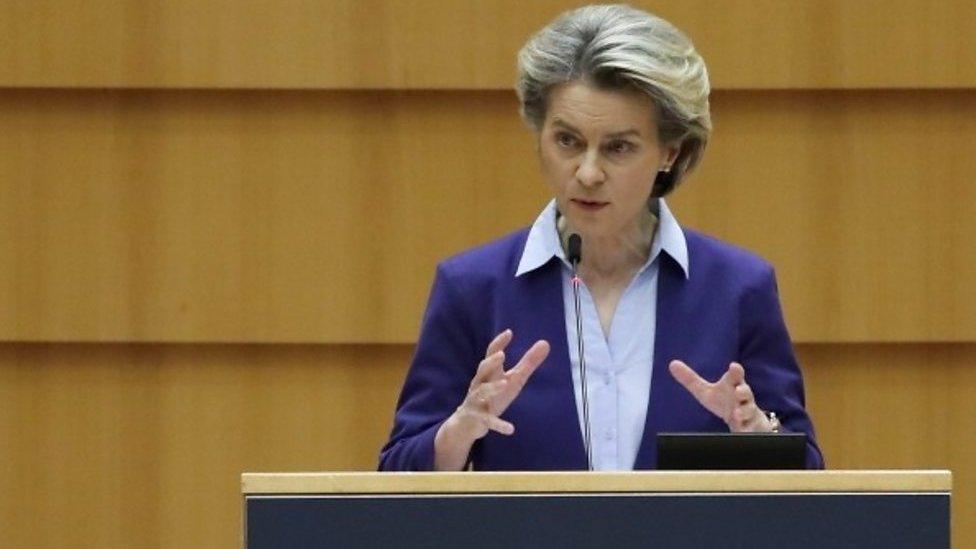
- Published6 February 2021
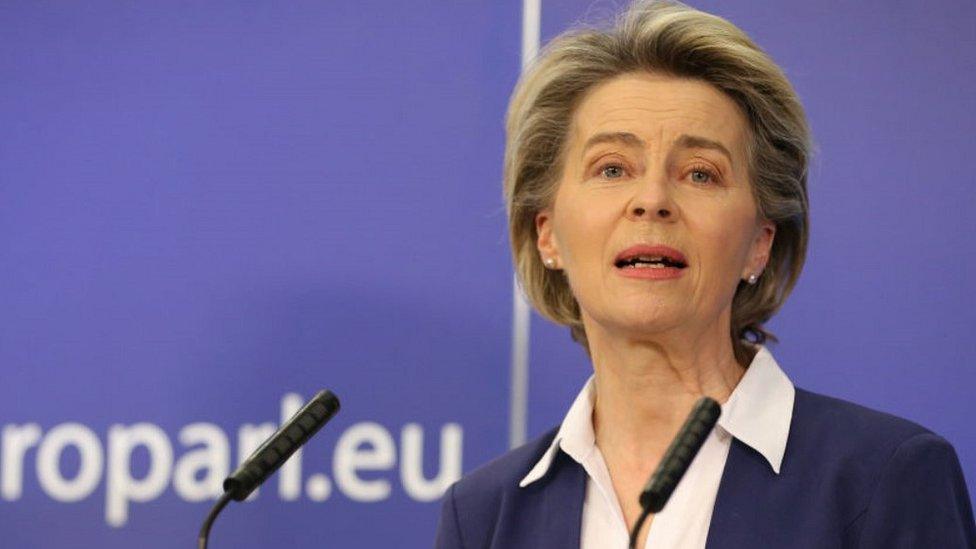
- Published18 January 2021
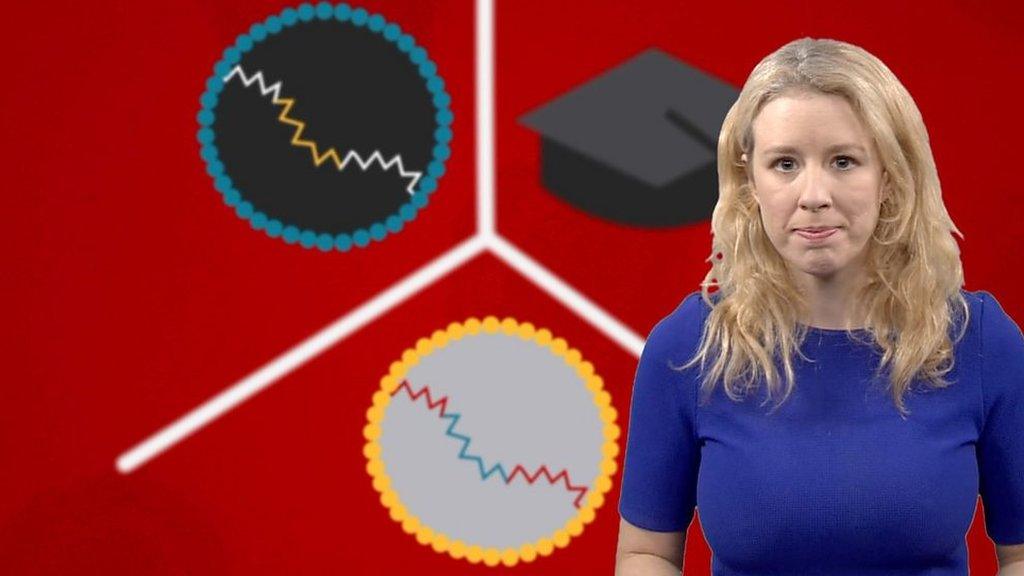
- Published30 January 2021
- Published11 December 2020
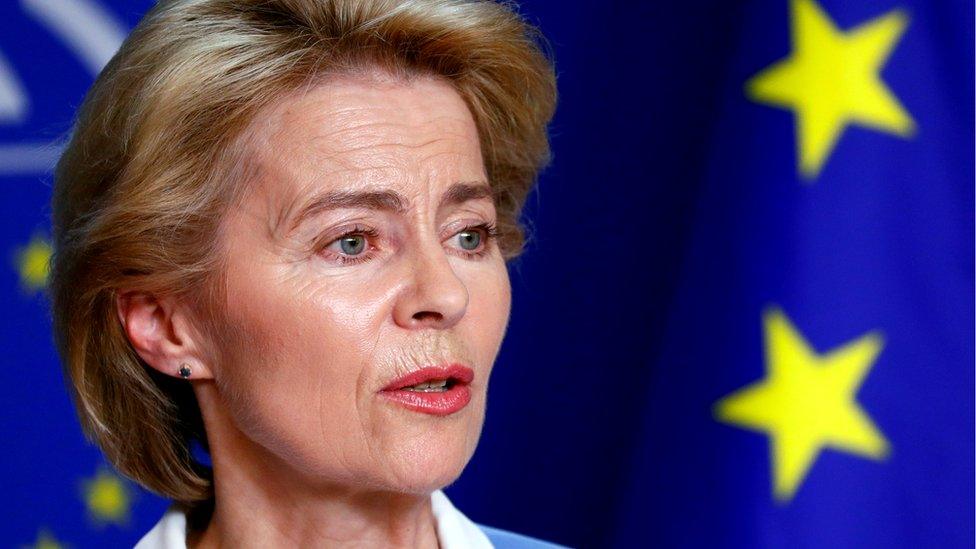
- Published21 June 2021
